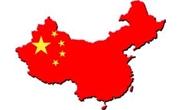Government/Policy

July 19, 2017
U.S./China Talks Unproductive
Written by Sandy Williams
Trade talks with China this week ended in a stalemate after the U.S. pressed for “more fair” trade terms. The discussions were described as “a frank exchange” but little if any agreement was reached on bilateral trade and economic issues, according to a senior U.S. official. A press conference following the meeting was canceled and no joint statement was issued.
Commerce Secretary Wilbur Ross and Treasury Secretary Steven Mnuchin said, “China acknowledged our shared objective to reduce the trade deficit, which both sides will work cooperatively to achieve.”
U.S. officials pressured China to make substantial cuts to steel capacity and reduce its trade surplus, according to a Washington Post source.
The U.S. says the $347 billion trade deficit with China is not a result of market forces but of distorted trade practices. On Wednesday, President Trump told a reporter that tariffs on steel “could happen.” The White House has scheduled a rally on Tuesday in the heart of steel country in Youngstown, Ohio, where it is speculated that the President will announce steel tariffs as a result of the Section 232 national security investigation.
The two sides appeared to make some progress on expansion of investment and trade in services. The Chinese embassy in Washington called it “significant progress” and said, “The two sides will expand areas of cooperation in services and increase trade in services; expand mutual investment; and create a more open, equitable, transparent and convenient investment environment.”







